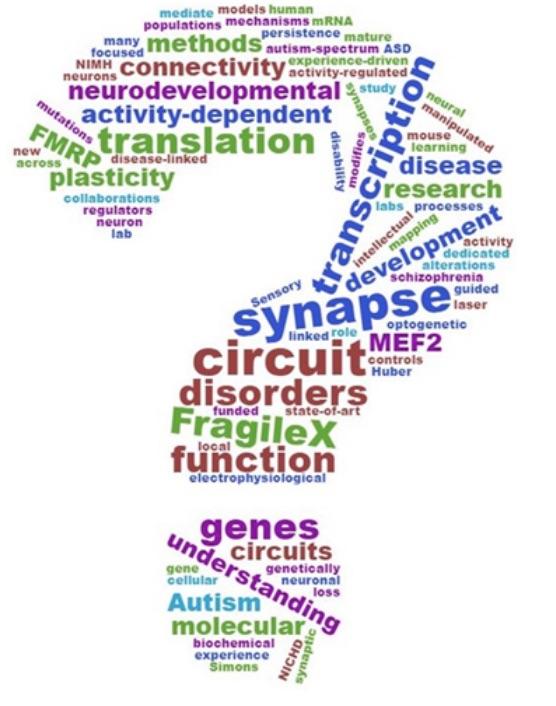Sensory experience-driven neural activity is necessary for the proper development of circuits and modifies synapse function and connectivity to mediate learning. The persistence of activity-dependent alterations in synaptic connectivity requires new gene transcription and regulated “local” mRNA translation near synapses. The Huber Lab is focused on understanding how activity-regulated transcription and translation in neurons control synapse and circuit plasticity and development. Importantly, loss of function mutations in regulators of activity-dependent transcription and translation are implicated in human neurodevelopmental disorders, such as autism-spectrum disorders (ASD), intellectual disability, and schizophrenia. Our research is dedicated to understanding how these disease-linked genes contribute to synapse and circuit function and plasticity and how these processes go awry in mouse models of neurodevelopmental disorders. To study the role of disease genes in synapse and circuit function, we incorporate state-of-the-art electrophysiological, optogenetic, and laser-guided functional circuit mapping methods, together with the imaging of genetically manipulated neuron populations. We also utilize biochemical and molecular methods to understand the cellular and molecular mechanisms of disease-linked genes on neuronal function. Our work has been published in Neuron, J. Neuroscience, Cell, eLife, and Nature Neuroscience. We are funded by NICHD, NIMH, and Simons Foundation for Autism Research and have collaborations with labs across the country.
